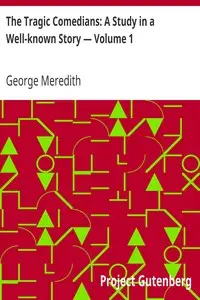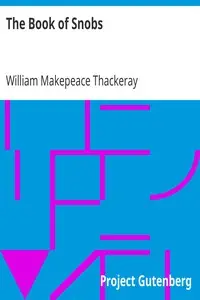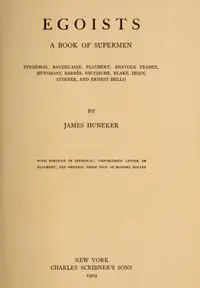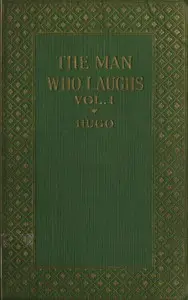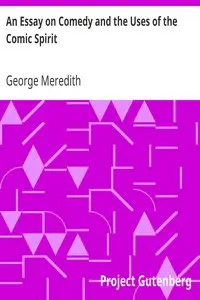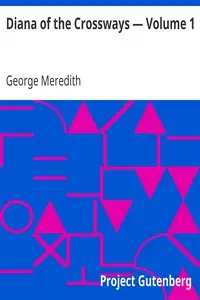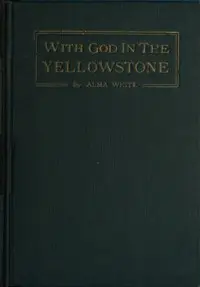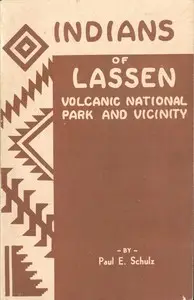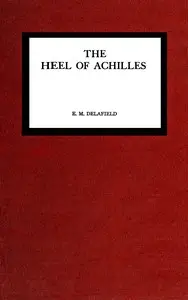"The Egoist: A Comedy in Narrative" by George Meredith is a late 19th-century novel that cleverly uses humor to explore human flaws and social connections through Sir Willoughby Patterne, a rich, self-absorbed man dealing with love and family pressures. It's not just funny; it's a critical look at the egotism and rules of high society back then. The story starts by discussing comedy's job in showing us our own society, highlighting the foolishness that comes from ego and fitting in. Then we meet Sir Willoughby, worried about his family's name and meeting Lieutenant Crossjay Patterne. We are introduced to a lady named Constantia Durham, though she is betrothed to Willoughby, their situation is presented as awkward. Thus, setting the scene for a funny yet critical look at love, ego, and what society expects.

The Egoist: A Comedy in Narrative
By George Meredith
In a world of wealth and social expectations, a man's inflated ego becomes the center of a comedic storm of love, family, and societal pressures.
Summary
About the AuthorGeorge Meredith was an English novelist and poet of the Victorian era. At first, his focus was poetry, influenced by John Keats among others, but Meredith gradually established a reputation as a novelist. The Ordeal of Richard Feverel (1859) briefly scandalised Victorian literary circles. Of his later novels, the most enduring is The Egoist (1879), though in his lifetime his greatest success was Diana of the Crossways (1885). His novels were innovative in their attention to characters' psychology, and also portrayed social change. His style, in both poetry and prose, was noted for its syntactic complexity; Oscar Wilde likened it to "chaos illumined by brilliant flashes of lightning". Meredith was an encourager of other novelists, as well as an influence on them; among those to benefit were Robert Louis Stevenson and George Gissing. Meredith was nominated for the Nobel Prize in Literature seven times.
George Meredith was an English novelist and poet of the Victorian era. At first, his focus was poetry, influenced by John Keats among others, but Meredith gradually established a reputation as a novelist. The Ordeal of Richard Feverel (1859) briefly scandalised Victorian literary circles. Of his later novels, the most enduring is The Egoist (1879), though in his lifetime his greatest success was Diana of the Crossways (1885). His novels were innovative in their attention to characters' psychology, and also portrayed social change. His style, in both poetry and prose, was noted for its syntactic complexity; Oscar Wilde likened it to "chaos illumined by brilliant flashes of lightning". Meredith was an encourager of other novelists, as well as an influence on them; among those to benefit were Robert Louis Stevenson and George Gissing. Meredith was nominated for the Nobel Prize in Literature seven times.

